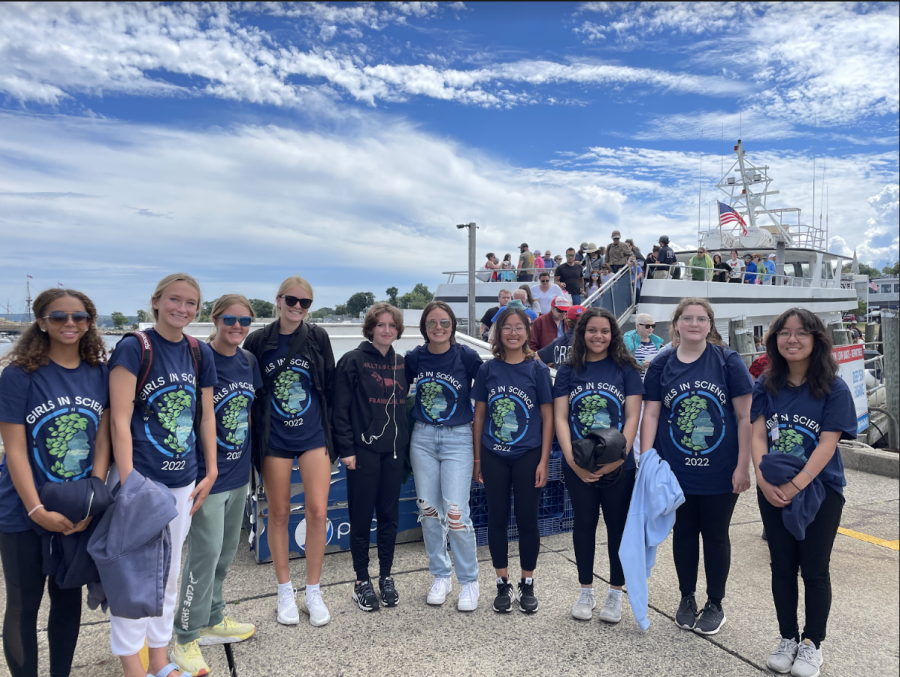Hailey Graziano’s Marine Fellowship Provided Real-Life Experience
November 5, 2022
Senior Hailey Graziano put her curiosity to work this summer. Graziano participated in a week-long fellowship this past August in Woods Hole, Cape Cod. The fellowship, Girls in Science, is for young women who have an intellectual passion for science, biology, and other STEM subjects. The three sponsoring organizations of this fellowship were Woods Hole Sea Grant, Woods Hole Oceanographic Institute, and Earthwatch Institute.
Graziano worked closely with scientists and other professors, investigating dolphin bioacoustics or whistle patterns. She worked alongside many professors and scientists including Dr. Sayigh. Graziano said, “These signature whistles act basically as the names of dolphins, and part of Dr. Sayigh’s research looked into the occurrences of these whistles, their unique characteristics, and dolphins’ abilities to mimic the signature whistles of others.” To measure and decipher these whistles, the volunteers used underwater bioacoustic sound recording systems. The recorders begin to record when they register an underwater frequency. The software is similar to a walkie-talkie attached to a wire and microphone where the recording is stored. Hailey said, “dolphins usually have pretty unique and distinct high-pitched whistles.”
One of Graziano’s daily tasks was sorting and classifying audio files that underwater recorders had distinguished as dolphin whistles. Graziano explained, “Human observers are currently more accurate than AI at sorting out what is a dolphin whistle and what is not.” Graziano and other volunteers organized dolphin and non-dolphin sounds. They then sent back the information to the recorder’s developer, allowing him to improve the accuracy of his technology.
In addition to hands-on experiences, Graziano also learned about the occupational activities of professionals at various local oceanographic institutions. Graziano said, “We learned a lot about the research and sample-taking process and the development steps of various types of research technology.” She also mentioned the perseverance of these professionals as “all of them had taken a very long, winding, and indirect route to the place they were in now.” Learning this, Graziano stressed, “nothing is set in stone when you are 18 years old.”
The fellowship stretched Graziano’s mind and “heightened [her] passion for marine conservation.” Learning about “new technology currently in the stages of development,” Graziano was exposed to modern, advanced ways of data collection. Graziano recommends this fellowship program to other young women at Scituate High School, stating, “I was already pretty sure that I wanted to study marine biology in college and one day go into the field, but this just solidified it!” She worked alongside “undergrad and graduate students as well as professionals” receiving real-life experiences and honest advice. Graziano is grateful for the hands-on learning experiences and friends she made throughout the program.
